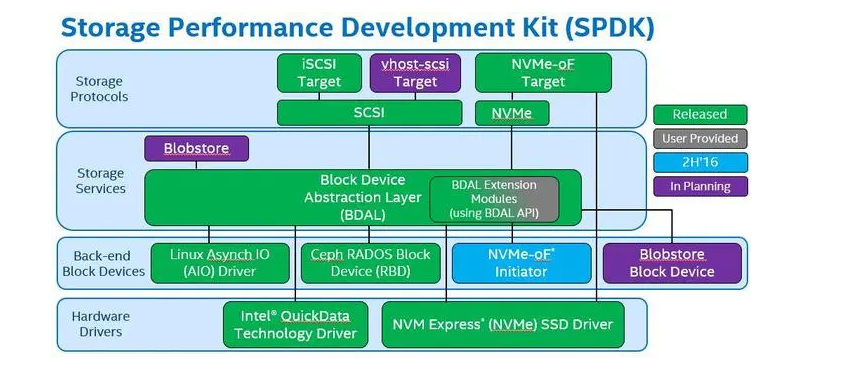以下是一个简单的示例代码,用于使用DPDK中的hash表来存储TCP重组流,并实现超时流检测队列:
#include <stdio.h>
#include <stdlib.h>
#include <string.h>
#include <stdint.h>
#include <stdbool.h>
#include <time.h>
#include <unistd.h>
#include <rte_hash.h>
#include <rte_jhash.h>
#define MAX_FLOW_TIMEOUT 60 // 60秒超时时间
#define FLOW_POLL_INTERVAL 1 // 流轮询间隔,1秒
#define FLOW_TABLE_SIZE 1024 * 1024 // 流表大小
// 定义流缓存结构体
typedef struct flow {
uint32_t src_ip;
uint16_t src_port;
uint32_t dst_ip;
uint16_t dst_port;
uint32_t seq;
uint32_t ack;
uint8_t * payload; // TCP负载
uint16_t payload_len; // TCP负载长度
time_t last_active; // 最后活跃时间
} flow_t;
// 定义流哈希表结构体
typedef struct flow_table {
struct rte_hash * hash; // DPDK哈希表
flow_t ** flows; // 流数据缓存数组
size_t max_flows; // 最大允许的流数
size_t num_flows; // 当前流数量
} flow_table_t;
// 初始化流哈希表
flow_table_t * flow_table_init(size_t max_flows)
{
// 初始化哈希表
struct rte_hash_parameters hash_params = {
.name = "flow_table",
.entries = FLOW_TABLE_SIZE,
.key_len = sizeof(uint64_t),
.hash_func = rte_jhash,
.hash_func_init_val = 0,
};
struct rte_hash * hash = rte_hash_create(&hash_params);
if (!hash) {
printf("Error creating flow table hash.\n");
return NULL;
}
// 初始化流缓存数组
flow_t ** flows = (flow_t **) calloc(max_flows, sizeof(flow_t *));
if (!flows) {
printf("Error allocating memory for flow cache.\n");
rte_hash_free(hash);
return NULL;
}
flow_table_t * flow_table = (flow_table_t *) malloc(sizeof(flow_table_t));
flow_table->hash = hash;
flow_table->flows = flows;
flow_table->max_flows = max_flows;
flow_table->num_flows = 0;
return flow_table;
}
// 创建新的流对象
flow_t * flow_create(uint32_t src_ip, uint16_t src_port, uint32_t dst_ip, uint16_t dst_port, uint32_t seq, uint32_t ack, uint8_t * payload, uint16_t payload_len)
{
flow_t * flow = (flow_t *) malloc(sizeof(flow_t));
if (!flow) {
printf("Error allocating memory for new flow.\n");
return NULL;
}
flow->src_ip = src_ip;
flow->src_port = src_port;
flow->dst_ip = dst_ip;
flow->dst_port = dst_port;
flow->seq = seq;
flow->ack = ack;
flow->payload = payload;
flow->payload_len = payload_len;
flow->last_active = time(NULL);
return flow;
}
// 将流对象添加到流哈希表中
bool flow_table_add(flow_table_t * flow_table, uint32_t src_ip, uint16_t src_port, uint32_t dst_ip, uint16_t dst_port, uint32_t seq, uint32_t ack, uint8_t * payload, uint16_t payload_len)
{
// 检查是否已达到最大允许的流数
if (flow_table->num_flows == flow_table->max_flows) {
printf("Maximum number of flows reached.\n");
return false;
}
// 创建新的流对象
flow_t * flow = flow_create(src_ip, src_port, dst_ip, dst_port, seq, ack, payload, payload_len);
if (!flow) {
printf("Error creating new flow.\n");
return false;
}
// 将流对象加入哈希表
uint64_t flow_key = ((uint64_t) src_ip << 32) | dst_ip;
int ret = rte_hash_add_key_data(flow_table->hash, &flow_key, flow);
if (ret < 0) {
printf("Error adding flow to hash table: %s\n", rte_strerror(abs(ret)));
free(flow);
return false;
}
// 将流对象加入缓存数组
flow_table->flows[flow_table->num_flows++] = flow;
return true;
}
// 获取指定流的对象
flow_t * flow_table_lookup(flow_table_t * flow_table, uint32_t src_ip, uint16_t src_port, uint32_t dst_ip, uint16_t dst_port)
{
uint64_t flow_key = ((uint64_t) src_ip << 32) | dst_ip;
flow_t * flow;
int ret = rte_hash_lookup_data(flow_table->hash, &flow_key, (void **) &flow);
if (ret < 0) {
return NULL;
}
return flow;
}
// 从流哈希表中删除指定的流对象
bool flow_table_remove(flow_table_t * flow_table, uint32_t src_ip, uint16_t src_port, uint32_t dst_ip, uint16_t dst_port)
{
uint64_t flow_key = ((uint64_t) src_ip << 32) | dst_ip;
// 从哈希表中删除流对象
int ret = rte_hash_del_key(flow_table->hash, &flow_key);
if (ret < 0) {
printf("Error removing flow from hash table: %s\n", rte_strerror(abs(ret)));
return false;
}
// 从缓存数组中删除流对象
int i;
for (i = 0; i < flow_table->num_flows; i++) {
if (flow_table->flows[i]->src_ip == src_ip && flow_table->flows[i]->dst_ip == dst_ip) {
free(flow_table->flows[i]);
break;
}
}
if (i == flow_table->num_flows) {
printf("Flow not found in cache.\n");
return false;
}
flow_table->flows[i] = flow_table->flows[--flow_table->num_flows];
return true;
}
// 流超时检测函数
void flow_timeout_check(flow_table_t * flow_table)
{
time_t current_time = time(NULL);
size_t i;
for (i = 0; i < flow_table->num_flows; i++) {
if (current_time - flow_table->flows[i]->last_active > MAX_FLOW_TIMEOUT) {
printf("Flow timed out.\n");
flow_table_remove(flow_table, flow_table->flows[i]->src_ip, flow_table->flows[i]->src_port, flow_table->flows[i]->dst_ip, flow_table->flows[i]->dst_port);
}
}
}
// 流轮询函数
void flow_polling(flow_table_t * flow_table)
{
while (true) {
sleep(FLOW_POLL_INTERVAL);
flow_timeout_check(flow_table);
}
}
int main(int argc, char **argv)
{
flow_table_t * flow_table = flow_table_init(1024);
// 在此处添加代码以将TCP重组流添加到哈希表中
// 创建流轮询线程
pthread_t flow_poll_thread;
pthread_create(&flow_poll_thread, NULL, (void *) flow_polling, flow_table);
// 在此处添加代码以处理TCP重组流
return 0;
}





















